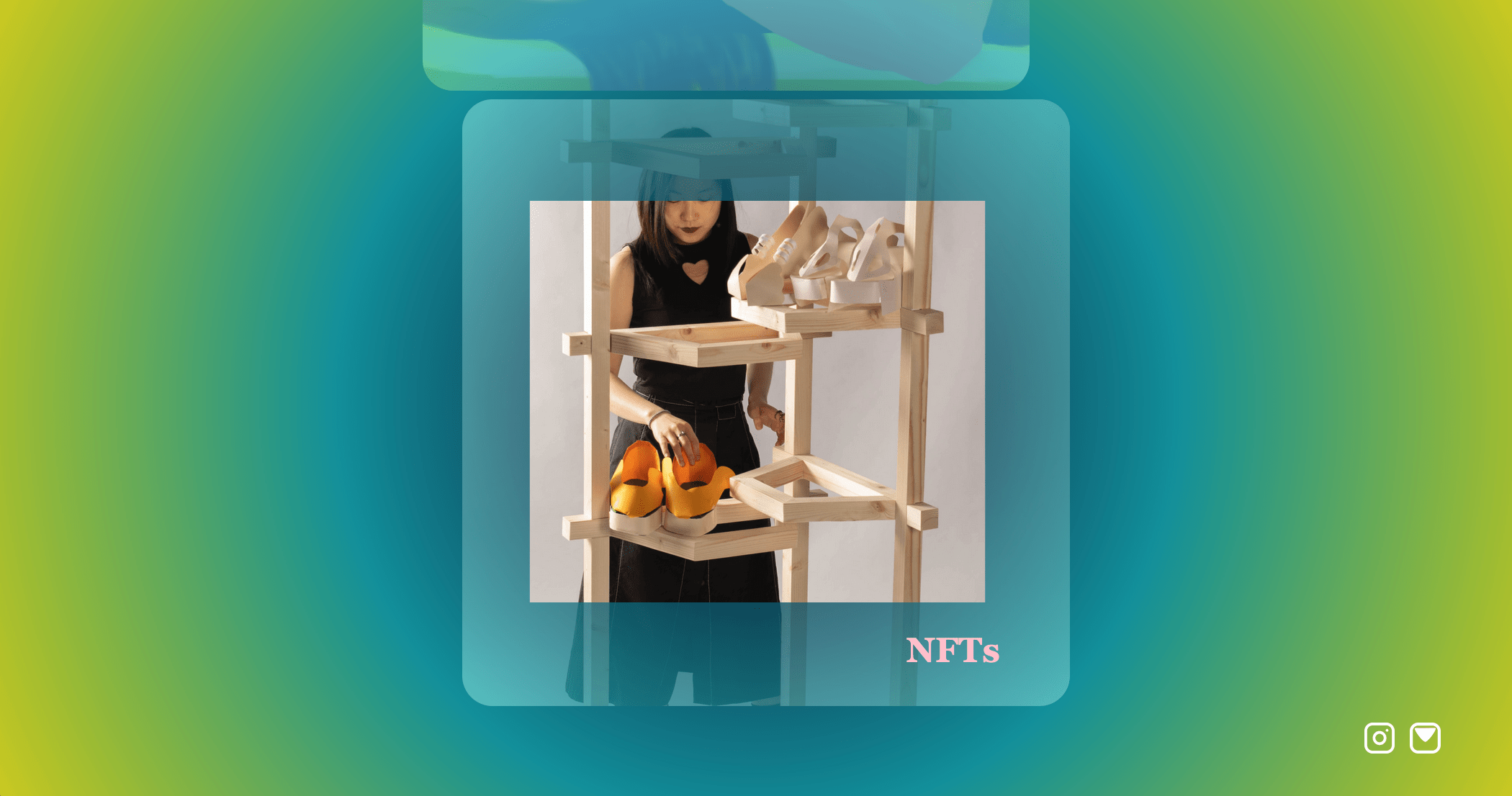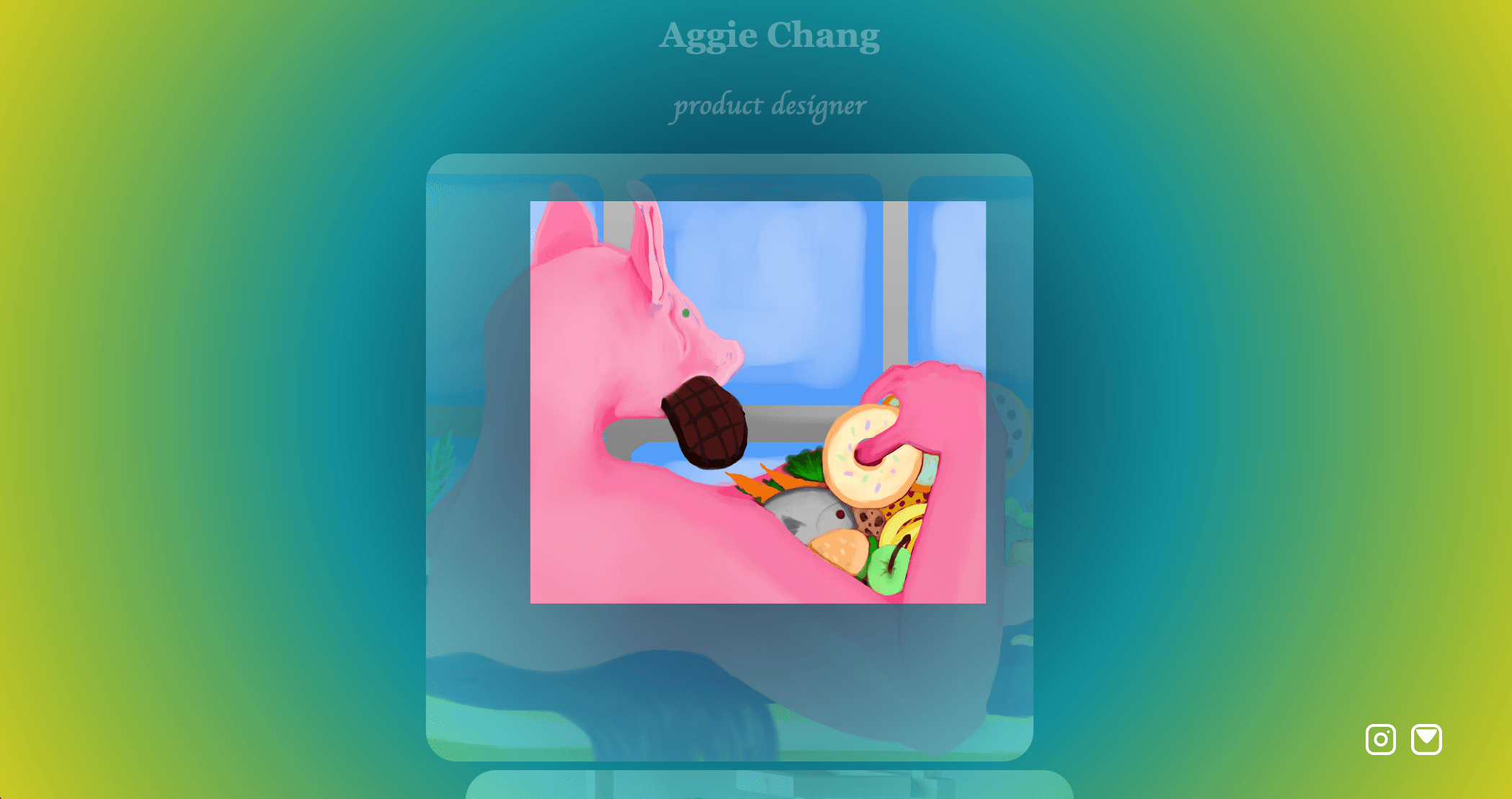Nami (N): Could you please introduce yourself?
Aggie (A): My name is Aggie, and I am a 3rd year Product Design department in Willem de Kooning Academy. I also did a foundation at an art academy in London. I am 24 years old, and think I'm a bit older than average fellow students.
N: Do you find 24 is a bit old?
A: I mean, not late, but most of people in my age already graduated from colleges.
N: I don't think it's a big gap! I didn't know you did the foundation in London, by the way. I'm curious how your experience in the Product Design department in the current art institution. And how was studying the same practice in London?
A: It is really nice. It's a bit different because in London they tend to more focus on problem solving. They wanted us to find a problem then try to solve it. In contrast, WDKA is more encouraging students to have hands-on, crafty and experimental manner. For instance I can go to the metal station and really make things. You can still make something based the problem-solving approach, but here in WDKA (Willem de Kooning Academy), it's not the centric or important.
N: Nice to hear you're happy with your learning experience in WDKA. You and I met in a WDKA Elective course 'HTML Zine Club', which is an experimental curriculm for the 1st and the 2nd year students. A nice thing about it was that I was able to meet students from various majors. I'm curious what made you enroll the course.. Was it more an arbitrary choice? Or, did you make the decision after reading the description?
A: I was already interested in website design and UX/UI. As a product designer, I always want to do things by myself. If I want to design a website, I just don't want to make something how it usually looks like. I want to be able to build it by myself so that I know what and how I want it to be. Before coming to the academy, I was alrady interested in this aspect and tried to learn how to code. I took some online courses, but it was just difficult because you have problems then you also have to know what and how to ask. Probably throughout such tutorials, you'd get more insight how to do, thus you can search for things more. In the beginning, however, you don't even know how to set up a page. From that position, it's not easy to learn things well. Also I tried to get back to the code study but I never really had time to do so because I was always busy with other projects. It was not my main focus. So I saw the Elective as a chance to explore what I wanted to do.

N: You just said that you were interested in the UI/UX design. May I ask the reason why?
A: Well, considering the job-searching, content that I found on the Internet, surfing the keyword 'product design' was mostly about the web or application design and development. Although the coding didn't seem to be directly linked to the product design, I've thought it's something nice to learn for the near future.
N: Indeed, a lot of experienced UI/UX designers work with the job title, 'product manager'. To me it still sounds a little ambiguous but according to the explanation from the business-driven industry, I kinda get what they mean. So in the course, I gave you technical instructions in HTML & CSS, wishing that you would be able to practice writing lines of codes by your hands. How was this hand-coding practice for you? (I mean, of course eventually most of people use their hands to type keyboards :p) I'm curious how you experienced the manual process of building blocks of codes that you needed for your web page, and find issues and try to solve them?
A: I enjoyed it a lot because you do it and you see how it works immediately. And the fact that I was writing the codes on my own was liberating. I know platforms such as WIX and WordPress. On such programs, it seems like easy to make a website, but I had an impression that they don't offer you freedom that much because the given tools and options from their interface were quite narrow. From the hand-coding, in contrast, I was able to see a free canvas in front of me. I felt a kind of independency.
N: I can also relate myself to that. You just gave me a beautiful word, which is free canvas. That asepct of the hand-coding is always something attractive to me as well. Hearing you, now I'm curious how it was like to be pushed to the boundaries of discovering issues in your codes and solving them? During the class, I gave the students some technical instructions then visited each of them to help code challenges they faced. I did my best to help them to find a way to fix them or to give them extra instruction. It was, however, not possible to help all of their issues, and many of the students eventually managed self-diagnosing and finding ways to solve their code issues. I remember you were one of the students who were very spontaneous and proactively searching for various directions for the de-bugging. How did you experience the process? Wasn't it challenging?
A: It was difficult in the beginning. Some time, I had to spend a whole day merely for a button. But when I resolved the issue, sense of the acheievement was amazing and I was kinda addicted to it in the end.

N: Haha, spending a whole day for a button used to be my past story (not long ago). It's nice to hear that you were inspired by the independent process. What I believe in this practice is that the DIY (Do It Yourself) spirit helps releasing the concept of the gap between 'user' and 'developer/programmer', because the persistent but spontaneous process of hand-coding makes you realise that you have enough ability to make something you want, and you would no longer feel the programming practice is something too challenging. In the past, the word programming or coding sounded heavy to me because I had a prejudgment that it's highly professionalised skill, requiring a lot of knowledge. What I loved about the practice of webzine-making along with learning codes is that I emancipated myself from the pressure/misbelief that the wall for being able to code is too high.
A: I haven't really thought that the bar for (so-called) the programmer position is too high from the user perspective. From my point of view, programmer comes first as user because she/he is the first person who experience the website that is being built. I also agree with the idea of not drawing the line between the two position.
N: Yes, that's what I also wanted to manifest through the HTML Zine Club. And in order to expand the concept of lines with maker/viewer, publisher/reader, programmer/user, what I encoruage the students to do is using their personal experiences/stories/memories. Working with your own writings or media, you can see the materiality in the digital medium. How did you experience the notion of 'webzine' in my course?
A: To answer the question, I should come back to liberty that I mentioned. The webzine gave me a lot of freedom because it was basically telling my story and feelings. In addition, I also felt like I was working with rich physical aspects, as if I experience a book. I felt like I was able to touch and hear things when working for my webzine.
N: Indeed, I remember you made a sort of portfolio-like webpage in my class, but it was not a linear format of work portfolio. I was still able to see the 'zine' aspect from it because you worked with your personal narratives on your artistic trajectory, telling readers what kinds of person you are.
A: Thank you.
N: It is a beautiful thing to say. Like I mentioned in the beginning, it was a part of the school curriculm that made this learning experience. (I mean, I was also a learner, not only the students.) By now, I'd like to ask you if there are any critical aspects that you find from the current art institution.
A: Not so much, but I find something that is surrounded by the teachers. All settings resources are good enough, but the doctrine of self-discplinary' is a bit tricky sometimes.' They give you feedback but teachers are not gonna tell you more deeper, saying that it's uni and you should be able to self-question and find ways. But on the other other hand, I was not happy how the criticism works. I sometimes experiened that tutors' feedback can't help you to be more constructive because it's often on the surface. I think I just want a bit of more details and depth.
N: Yes, in the past my uni life, I had to question to myself a lot after my tutors' feedback by myself. Not everytime I was able to pick up what they meant and digest. I have a final question for you. Can you please give me any feedback for my course or my tutoring skills or attitude?
A: I don't have anything particular to say.. I just remember a memorable moment in your course when you explained the HTML tags with an analogy to human's body. It was a good example. I liked that you gave us a lot of freedom, without wanting or forcing us to behave in certain ways. But we could still be spontaneous enough.
I appreciate you. Thank you for the interview.